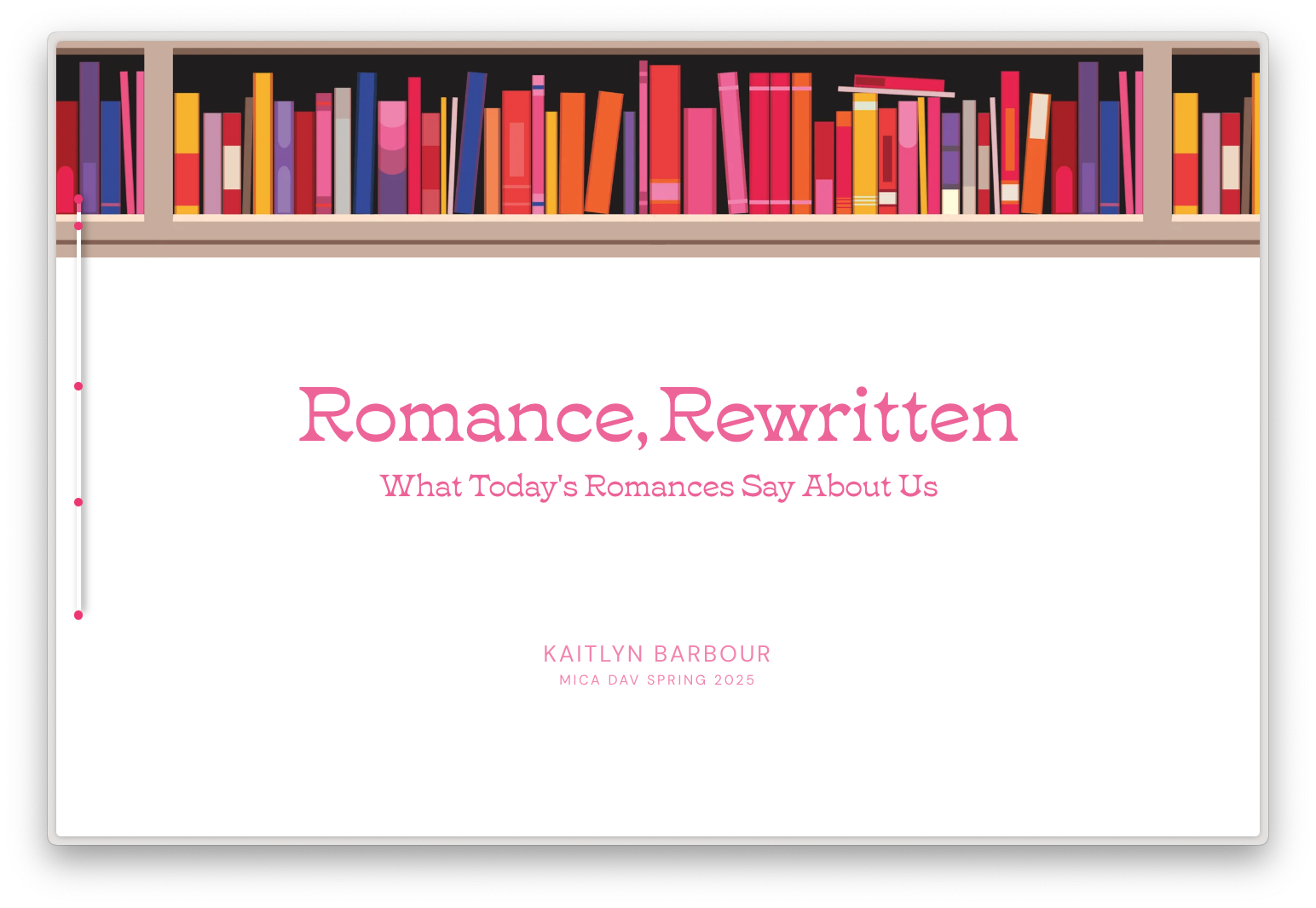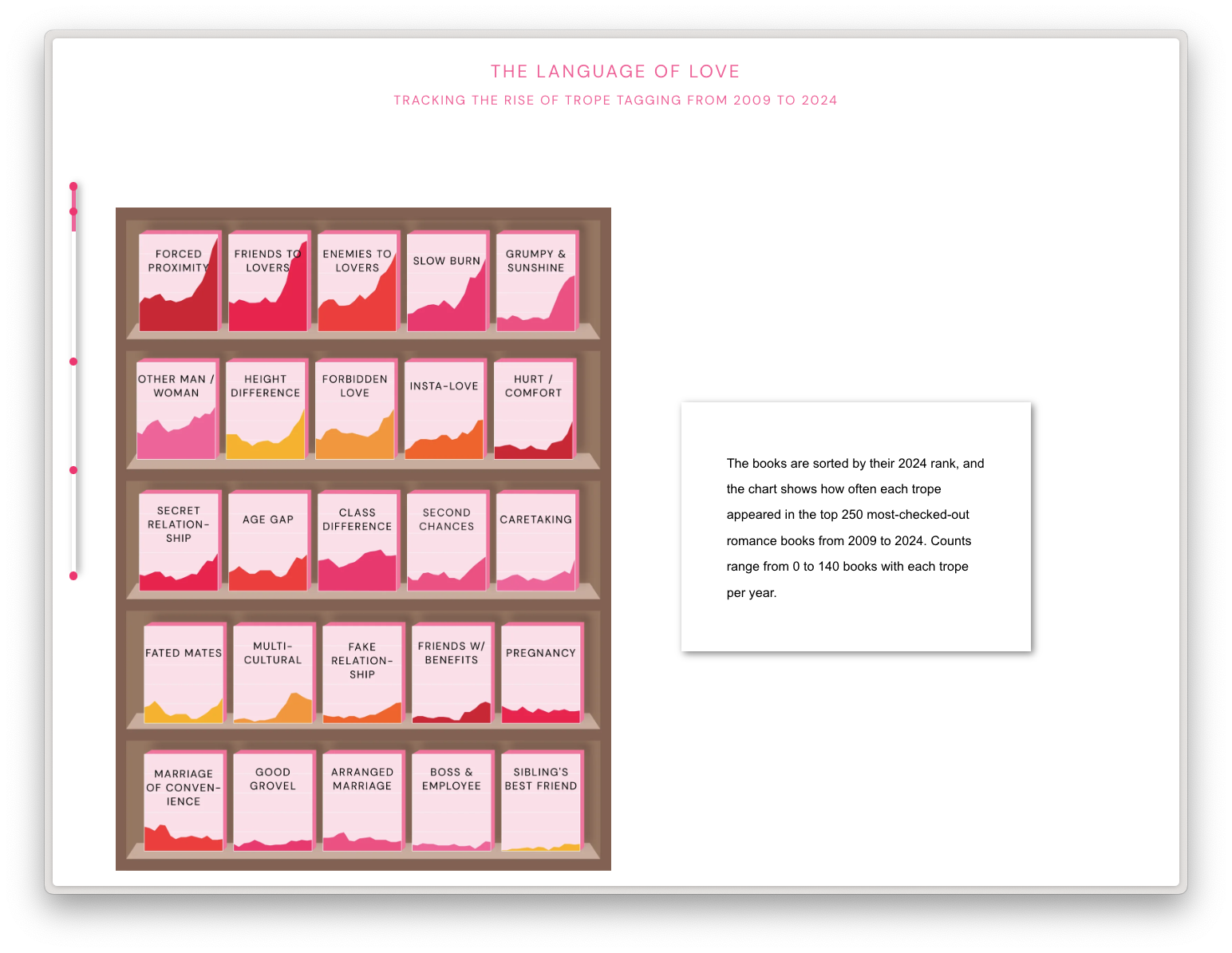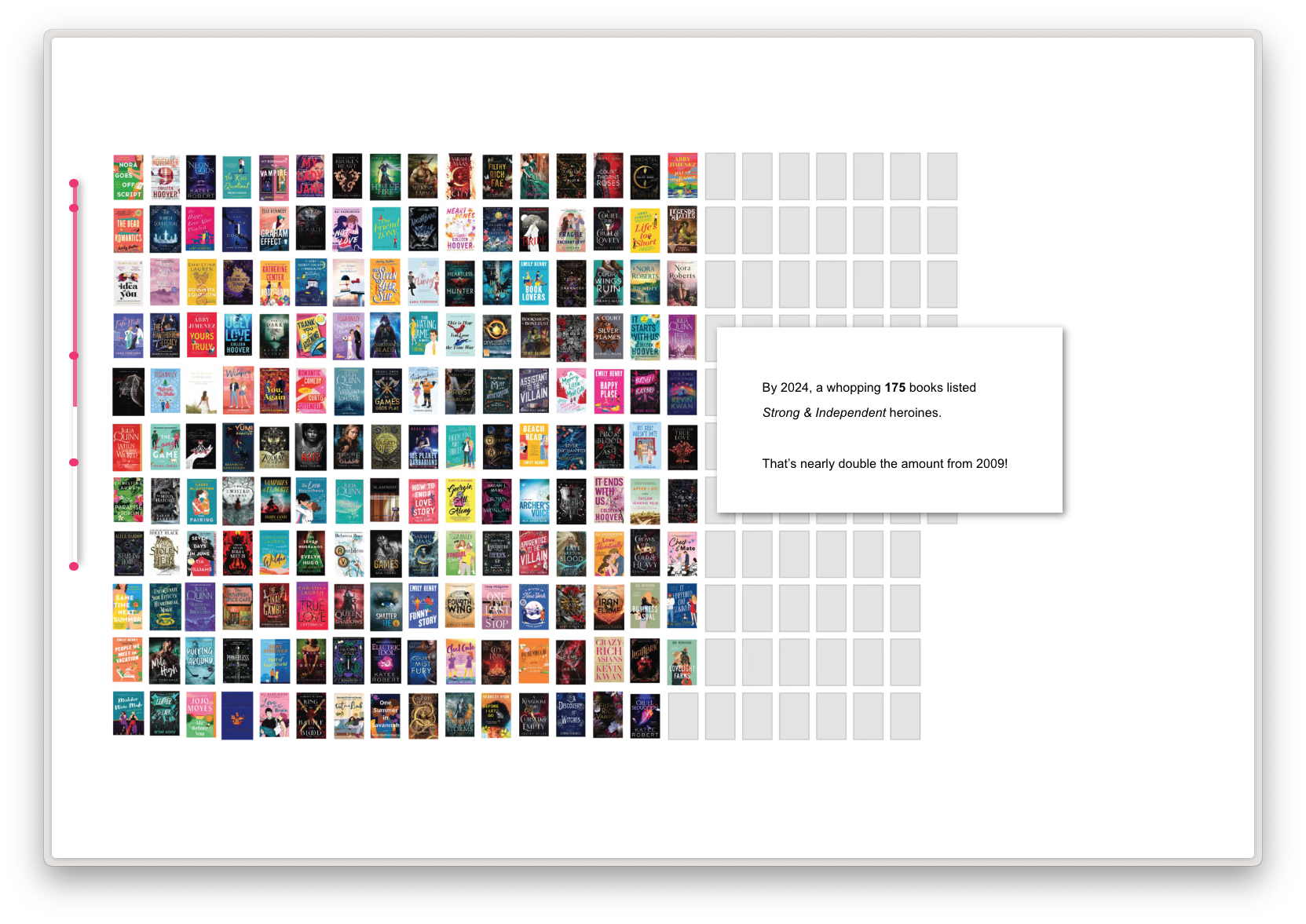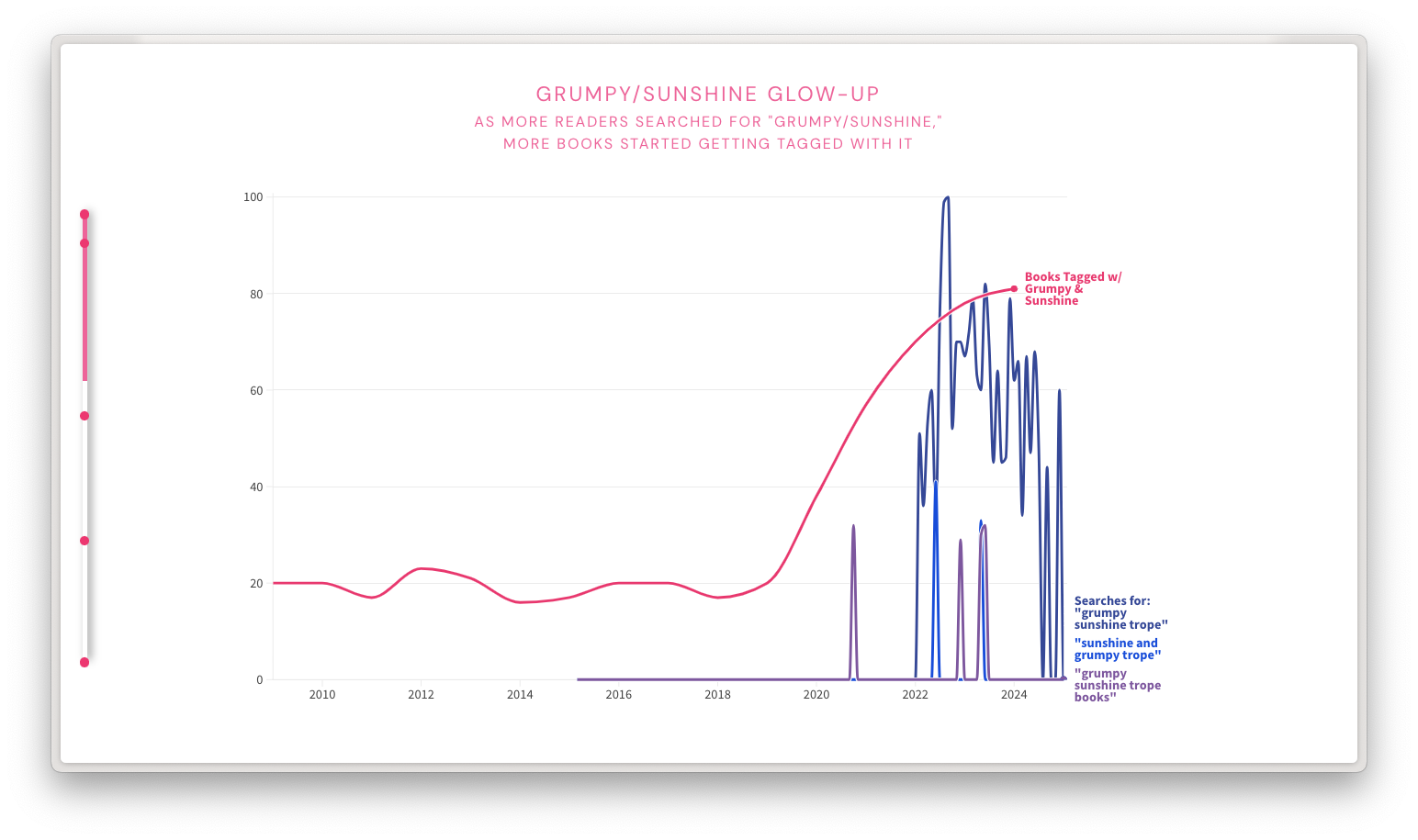
Romance, Rewritten
What Today's Romances Say About Us
A data storytelling project exploring how romance novels have changed from 2009 to 2024.
Project Overview
Romance, Rewritten is an interactive website exploring how popular romance novels have changed between 2009 and 2024. Using checkout data from the Seattle Public Library and scraped tags from Goodreads and RomanceIO, the project tracks trends in tropes, characters, and content warnings across 250 top romance books per year.
This was my capstone project (and the project I am most proud of at my time in the MICA program). This is a very abbreviated version of the final project and my methodology. For a much longer explanation of my choices, data analysis process, please read the project brief linked near the bottom!
The Question
Are romance novels changing — or just the way we talk about them? This project asks what the rise in tags like grumpy/sunshine, strong & independent, and mental health reveals about shifting genre norms and reader expectations.

Audience & Format
Made for younger romance readers (especially Gen Z), the site blends storytelling and data to offer cultural context around familiar genre elements. Visuals include:
- A trope bookshelf showing the post-2020 spike in tagging
- Charts tracking the decline of Alpha Males and rise of emotionally available heroes
- A waffle chart of Strong & Independent heroines built from book covers

Key Insights
- 14 of 25 tracked tropes doubled in frequency since 2019
- Warm, emotionally available male leads are rising — Alpha Males are falling
- Tags for death, abuse, and mental health are climbing, reflecting a shift toward emotional transparency

Reflection
This project shows how tagging behavior can reveal deeper cultural changes — even when it’s unclear if the content itself has shifted. With more time, I’d love to expand to include self-published books and analyze reader reviews to understand not just what’s tagged, but how readers talk about love today.
The website is only optimized for a desktop experience right now. That was one of my big limitations, in the future I’d love to explore making it mobile friendly.
To read more about my data collection process, etc, read the brief below!